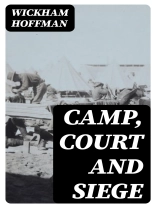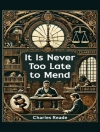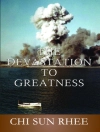In ‘Camp, Court and Siege, ‘ Wickham Hoffman weaves together a rich tapestry of historical narratives set against the backdrop of significant military campaigns and political intrigues of the 18th and 19th centuries. Hoffman’s prose is characterized by meticulous research and a keen eye for detail, which transport readers into the heart of conflicts and the machinations of power. The book offers an engaging blend of military history, personal anecdotes, and broader socio-political commentary, framed within its broader literary context that examines the interplay between warfare and societal transformation during this tumultuous period. Wickham Hoffman, an acclaimed historian and storyteller, draws upon his extensive background in history and literature to illuminate the past. His passion for uncovering little-known stories of conflict and diplomacy has been a driving force behind his literary career. Hoffman’s real-life experiences and scholarly pursuits have given him unique insights into the complexities of human nature and the factors influencing historical events, allowing him to craft a narrative that resonates with both depth and authenticity. This compelling work is a must-read for anyone interested in military history, political strategy, or the enduring impact of warfare on society. Hoffman’s engaging style and profound insights invite readers to reflect on the lessons of the past while appealing to both scholars and general enthusiasts alike.
About the author
Wickham Hoffman (1821–1900) was an American author and diplomat whose literary contributions reflect his experiences and insights gathered during his extensive career in public service. Emerging from a background of law, Hoffman transitioned into the diplomatic arena, where he served as United States Deputy Consul in Paris and later as Secretary of the United States Legation in London. Drawing upon these stints, he penned ‘Camp, Court and Siege’, a notable work providing a distinctive view on the sociopolitical dynamics of the era, offering readers a window into the subtleties of diplomatic life amidst the backdrop of military conflict. His writing style weaves intricate observations with a narrative flair that encapsulates the gravitas of the historical moments he encountered. A lesser-known figure in American literature, Hoffman nonetheless contributed a valuable perspective on nineteenth-century international relations and the role of American diplomacy. His works remain a resource for those interested in the historical intersection of politics, diplomacy, and society during a time of significant change.












